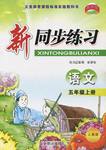题目内容
It is one of the greatest mysteries of nature. In case you haven’t noticed, all living things follow very definite, individual rhythms, all as regular as a clock, but what makes them regular?
Though many scientists maintain that these rhythms are the result of some outside force like gravity or radiation or both, the results of most scientific researches agree with other scientists who believe that each living thing has its own built-in biological “time clock.”
Take the mystery of migration for example. Scientists can’t really explain why many species of birds migrate in the autumn even though the temperature is still summery. The birds just seem to snub the comfortable weather that they are having. When a certain time comes, they travel south by the thousand. In spring time, they migrate northwards even though there probably is snow still covering the ground when they finally arrive. Something said “go,” and they did.
Animals that hibernate (冬眠) are obeying individual time clocks, too. When their clock indicates the time to take a winter’s nap, they do, and nothing can stop them. At a certain time in the spring, they wake up and come out regardless of the weather outside.
Plants appear to have yearly rhythms, such as the sprouting of seeds, and they also have daily rhythms. Notice sometimes that plants raise their leaves in daylight and lower them at night.
If you live along the California coast, you can easily observe a demonstration of this mysterious clock functioning regularly. There, from February to September, the highest tides occur exactly every fourteen and four-fifths days, and during these high tides, but at no other time, small silvery fish called grunions surf-ride a wave to the beach. There the female deposits her eggs in the sand and the male fertilizes them; then both hitch a wave-ride back to the sea. Exactly fourteen and four-fifths days later, never before or after, the tiny eggs hatch, and the high tide carries the new babies out to sea.
72. According to the passage, the mysterious rhythms result from ______.
A. the influence of gravity on living species
B. the effect of radiation on living species
C. the influence of a mysterious outer force on living species
D. the internal mechanism inside the living species
73. The underlined word “snub” in the third paragraph probably means ______.
A. fight B. ignore C. symbolize D. criticize
74. Which of the following statements is NOT TRUE?
A. Hibernating animals are obeying an internal time clock.
B. The positioning of the leaves of some plants is due to the daily rhythms.
C. The internal clock functioning is demonstrated in the reproducing habits of grunions.
D. The yearly hibernation is more because of the weather influence than the biological functioning.
75. The passage is mainly about ______.
A. the rhythms of life
B. the reasons of mysterious hibernation
C. strange behaviors of species
D. the timing for different events in the world of species
72----75 D B D A

 教学练新同步练习系列答案
教学练新同步练习系列答案